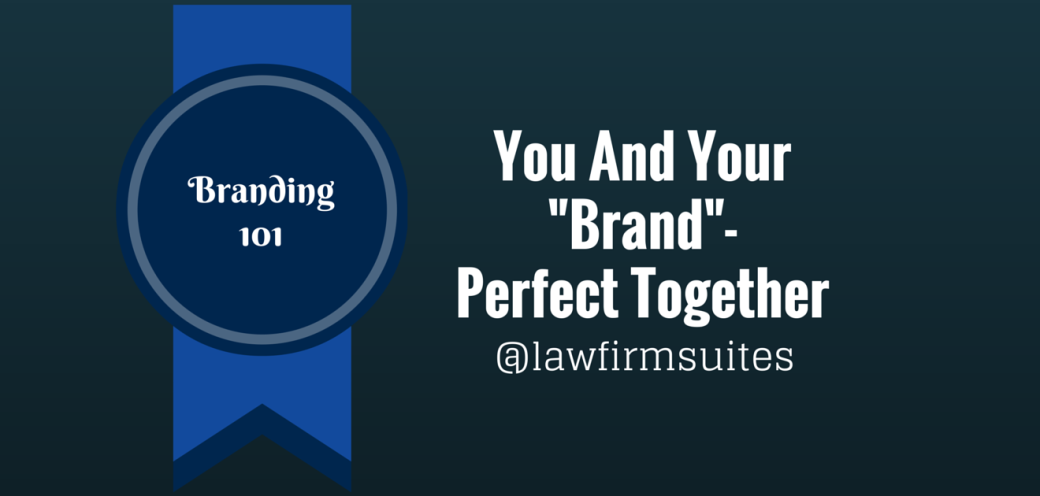International Business Attorney, R. Jason Huf, discusses how attorneys can build a strong personal brand.
You aren’t Corn Flakes, Coca-Cola, Apple or Ford, but you are running a business, and you want to distinguish the services you provide from those of your colleagues. You should want to achieve such distinction as close to instantaneously as possible.
Your practice is client driven. To achieve the practice you want, the one you have worked so hard starting from law school to establish – the one you’ve always dreamed of having – you have to attract the clients you want, rather than take what comes through the front door. If you go with the flow out of mere economic necessity, you’ll be washed out to sea like so many thousands of our anonymous brethren before us.
Attract the clients you want, rather than take what comes through the door #goals Click To TweetAs Co-Chairman of the New York County Lawyers’ Association’s Foreign & International Law Committee, I recently had the pleasure of hosting Mr. Richard Brownell of PRNews who held an informal ninety-minute talk with members of the Foreign & International Law Committee about using the latest technologies to establish and enforce an international practitioner’s (borderless) “Brand”. Rick Brownell, in addition to being an old friend, is a writer and commentator who consults extensively Public Relations and Media matters.
Click here for more on Rick and his many years of in-depth experience on this subject.
Irrespective of the subject matter of your practice areas, you have a business to run and, while remaining mindful of ethical constraints, you have to let the world know you exist. The knowledge of your existence should be both pervasive and accurate. And, contrary to popular belief in this Twitterized world in which we now live, your brand takes years of careful cultivation, starting from the day you decide you want to be an attorney (and, precisely what kind of an attorney you wish to become).
I will not go into the details of Rick’s presentation (that’s his province), but I will relate to my fellow LFS Community members some of my takeaways from that evening:
1) Your Brand isn’t merely a logo and a catch-phrase. It’s YOU. For it to be effective, it has to be genuine. If you aren’t “you”, your clients and the public at large will come to know it. In short, it won’t work. As Rick would say, no one is going to pay good money for an “empty suit”.
And, I know – you’re great. Aren’t we all? But know your weaknesses as well as your strengths as you craft your brand.
2) Take your Brand seriously. If you don’t, no one else will – why would they have any reason to otherwise?
3) You are not a Kardashian. You don’t need to be known by everybody. Conversely, “friends of friends” simply isn’t enough. Identify your target(s) – not all of them are necessarily existing and potential clients. If you are a divorce lawyer, you may well wish to target Long Island and/ or the entire State of New Jersey.
Kidding aside, social media, for example, is just an electronic, borderless, somewhat faster version of good old fashioned word-of-mouth. Some of your target audience will consist of the folks who roam in the same sorts of circles swirling around in the bubble(s) in which your current and potential clients exist.
Learn what interests the people whose attention you wish to grab in the universe you have targeted. And pay attention to the data analysis breakdowns that some social media tools provide for you: who is reading and, more fundamentally, who is “sharing” the items you post. This will help you to refine your targeting strategy.
4) You are a lawyer – that means you are likely cheap and social media is free. Social media seems attractive because, aside from your valuable time, utilizing it costs little to no (usually no) money. But, for social media to work, it has to be consistent (and, here, I will admit a shortcoming of mine – I only blog, post, status update, etc as and when I have time, instead of scheduling time for it).
For social media to be effective, you have to be consistent in posting intervals. Pick your (realistic) intervals, schedule them, stick to them, and be consistent. Most folks are creatures of habit. Become a habit. You do not need to be omnipresent like Ms. Kardashian’s rear end. But, you do need to be consistent to become a habit, lest you become just another voice lost in the commercial wind of an increasingly loud global economy.
Being consistent is key for social media to work #branding Click To Tweet5) Be selective in which social media platforms you use to get your consistent, brand-reinforcing message out to the targeted public. Some platforms work better than others, depending on what exactly you are trying to accomplish. Once you choose such platforms, don’t fritter away the whole day on them. Your only cost may be time, but your time is valuable (if it isn’t, then why should your clients pay for it?); and, as we all know, some of the work we do tends to be time sensitive. Be an adult – social media platforms are tools, not a lifestyle. Just stick to your regularly scheduled usage (the intense demands of your “Candy Crush” game notwithstanding).
6) Oh, and while everything you and I put up there will be authoritative and just plain terrific, don’t invest too much time and faith in what other folks post online. There’s a lot of useless, unsupported junk out there (Rick often refers to my characterization of the “Tin Foil Hat Crowd”, not just because its funny – but because its accurate).
7) Thought Leadership matters. Instead of running in the pack, have your own ideas – and, kick the can around with colleagues and even those outside the profession before publishing (once its on the net, its out there forever).
I cannot stress this enough in terms of importance. If you are kicking around other people’s ideas, it says very little about you other than your ability to regurgitate from a different angle. When your colleagues are kicking around your ideas, you become recognized as an “expert” without having to wear a T-Shirt that says “Hi, I’m an Expert!” (a guy wearing such a T-Shirt wouldn’t last a half hour in the neighborhood I grew up in). Further, when its your ideas others are discussing, you are – in a very real way – defining what constitutes “expertise” in the subject matter at hand.
(And, I know, I know – some in our profession have arranged it so that none of us with a New York license can refer to ourselves as an “expert” on anything – I’m not telling you to do that, and that’s not the point. We’re talking about other people being inspired to think of you as such without you having to tell them, or wear that downright awful T-Shirt).
I hope that you find the above to be helpful. I sure did. Any questions, please ask! ([email protected]).




on said:
I just wanted to publicly thank the staff that worked on editing and publishing this article, and to commend LFS on the new, sharper, cleaner layout of its blog section.
Great job, folks!